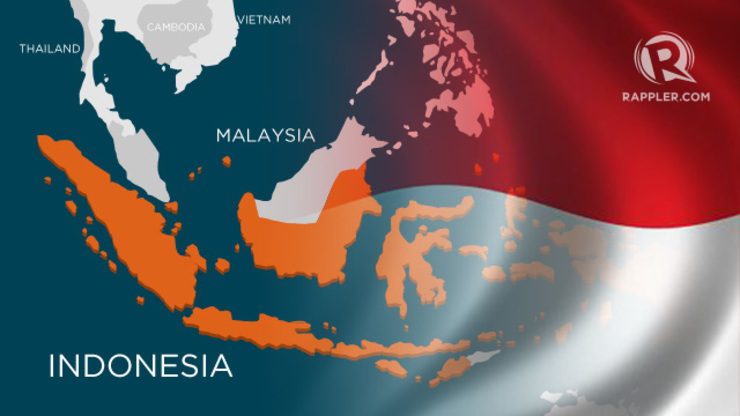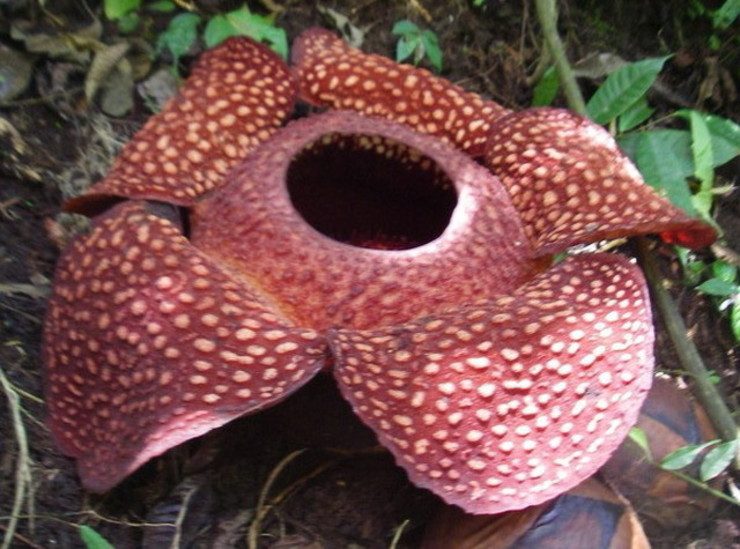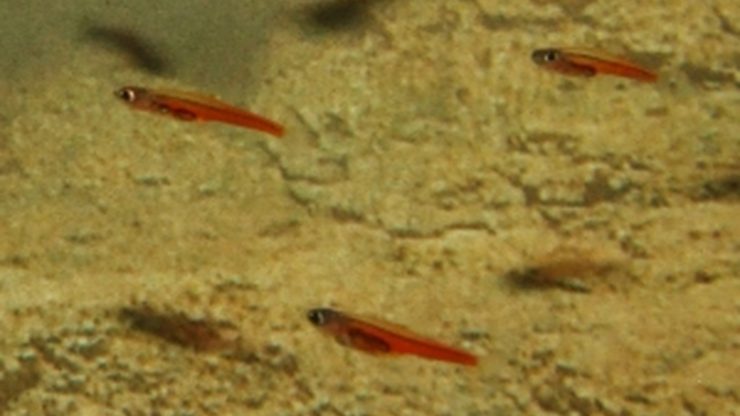SUMMARY
This is AI generated summarization, which may have errors. For context, always refer to the full article.

MANILA, Philippines – Indonesia celebrates on Sunday, August 17, the 69th anniversary of Hari Kemerdekaan (Independence Day).
Shortly after the end of World War II, the country proclaimed independence from Japan, as well as from the Netherlands, which had colonized Indonesia since 1800. (READ: Independence and national days of ASEAN countries)
Indonesia possesses interesting facts about many things – in terms of geography, its people and other natural resources, and others.
Here are some trivia you need to know – or may know already – about Indonesia:

|
Indonesia – often dubbed the “Emerald of the Equator” – is a country with a rich history and an emerging market economy that is leading among Southeast Asian nations. |
|
| Capital | Jakarta |
| Land Area | 1,860,360 sq km |
| Population | 253,609,643 (2014 estimate) |
| Currency | Rupiah |
| Demonym | Indonesian |
| Independence | August 17, 1945 |
| National Anthem | Indonesia Raya (Great Indonesia) |
| Language | Bahasa Indonesia |
| Year of ASEAN Membership | 1967 |
| Human Development Index | 0.629 (2012) |
| GDP per Capita | US$3,563 |
| Internet subscriber | 180 (per 1,000 persons) |
| Inflation Rate | 8.38% (2013) |
| Urban Population | 51% (2012) |
| Life Expectancy | 70.9 years |
| Tourist Arrival | 7,650,000 |
Indonesia is the world’s largest archipelagic state.
With a land area of 1,919,440 sq. km. and over 17,500 islands, Indonesia is considered as the world’s largest archipelagic state. It’s also ranked as one of the the top countries with the longest coastlines, with a length of 54,716 km, next to Canada.
There are 3 standard time zones observed in Indonesia.
Indonesia observes 3 time zones due to its huge land area. These time zones are the Indonesia Western Time (UTC+7:00), Indonesian Central Time (UTC+8:00) and Indonesia Eastern Time (UTC+9:00).
Indonesia is the world’s fourth most populous country
In 2014, Indonesia’s population is estimated at 253,899,536 – almost a 3 million jump from 2013’s estimate of 250,585,668. It is the fourth most populous country with a population density of 123.76 people per square kilometer (323.05 per square mile).
Indonesia embraces a republic form of government.
As does the Philippines, Indonesia embraces a unitary republic form of government, with a concentrated power delegated upon the central government. Since the establishment of the presidency during the formulation of Indonesia’s 1945 constitution, it has already been governed by 6 presidents. President-elect Joko Widodo will become the 7th president when he assumes office in October 2014.
Indonesia houses a lot of culturally heterogeneous groups
Indonesia is immensely culturally diverse with over 300 ethnic groups, each with their own traditions, and languages. It also has over 700 listed individual living languages – 13 of which are already extinct.
Indonesia only recognizes 6 religions.
To prevent “blasphemy” and “abuse of religions”, the first Indonesian president, Sukarno, issued Presidential Decree No. 1 officially recognizing 6 religions embraced by Indonesians, namely Islam, Protestantism, Catholicism, Hinduism, Buddhism, and Confucianism. This also requires every citizen – regardless of whether or not he believes in a God – to subscribe to one of these belief systems.
Indonesia is the world’s largest Muslim country.

Indonesia is home to about 13% of the world’s Muslim population, making it the world’s most populous Muslim-majority country. According to a 2010 Pew Forum demographic study, roughly 88% of Indonesia’s population is Muslim.
At the same time, though, the Pew Forum says Indonesia is home to more Christians than all 20 countries in the Middle East-North Africa region combined.
Indonesia’s small Hindu population holds a lot of ancient superstitions.
A small Hindu population in Indonesia on the island of Bali is rich in ancient superstitions. This includes not letting a child’s feet touch the ground for the first 6 months since the baby’s birth to avoid the devil entering the child.
Early human fossils were found in Indonesia.
The oldest hominin fossils Anthropopithecus erectus, later on named Pithecanthropus erectus, were discovered in Indonesia. These early human fossils are estimated to be roughly 1,000,000 years old. Since it was found specifically in Java, it was given the name Java Man.
The world’s largest flower can be found in Indonesia.

Rafflesia, the largest flower in the world, is native to the rainforests of Sumatra and Borneo in Indonesia. It is also known as a “corpse flower” due of its horrible odor of decaying human flesh.

The smallest known fish is endemic in Indonesia.
Paedocypris progenetica, a freshwater fish, is found in the swamps and blackwater rivers of Sumatra. It is part of the Cyprinidae family, and is the smallest known fish in the world with males reaching a maximum size of 9.88mm, far smaller than females with the size of 10.3mm.
Masturbating in public is penalized in Indonesia
While it is dismissed that Indonesian law prohibits masturbation per se, Indonesian Penal Code Article 281, however, states that those who purposely and explicitly conduct an immoral behavior in public will be punished by 8 months to 2 years imprisonment. This immoral behavior includes masturbation in public places. – Rappler.com
SOURCES: indoboom.com, indonesiad.com, The History and Legal Position of Confucianism in Post-independence Indonesia, The Parasitic Plant Connection, Paedocypris Progenetica, statoids.com, World Population Review, Ethnologue, Global Recordings Network, Central Intelligence Agency, ABC letter to Embassy of Indonesia
Aljohn De Leon is a Rappler intern.
Add a comment
How does this make you feel?
There are no comments yet. Add your comment to start the conversation.